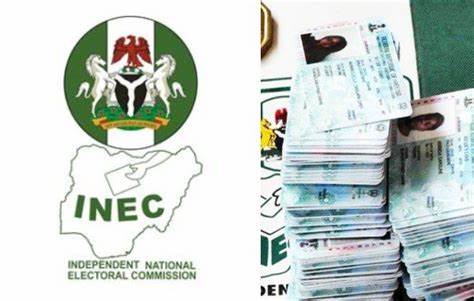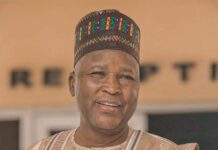Electoral Act 2020: X-Raying the Novel Provisions You Should Know By Kaigama Mustapha,
INTRODUCTION
From 1923 to date, Nigeria has been shrouded in series of electoral debacles which had troubled its young fragile democracy, claimed the lives of several citizens and exposed the infallibility of man made laws. These and many more issues had necessitated the promulgation of several electoral laws, amendments to such laws and issuance of regulations in an attempt to salvage electoral conundrums emanating from electoral malpractices which leads to electoral violence in most cases.
The fact remain incontrovertible that election is an integral and central part of democracy without which democracy will fail and lose its test and meaning. This however cannot be achieved without the institutionalization of a free, fair, credible and transparent electoral system. It is against this backdrop that successive governments in Nigeria right from Colonial days to date have made giant strides in improving on the Nigerian electoral laws; the recent assent to the Electoral Act 2022 on the 25th day of February 2022 by the President cannot also be divorced from this reality.
Nigeria’s new Electoral Act 2022 has had a very long and arduous journey, one that is filled with pillage of maelstroms and challenges. The need for an electoral system that will ensure the needed electoral reform, incorporate and validate the use of technology as well as remedy the infallibility of our laws can arguably be traced to 2011 but became more pronounced after the 2015 general elections partly because of the challenges faced with the regulation issued by the Independent National Electoral Commission (INEC) on the use of smart or electronic card reader as well as the ensuing intra and inter party novel issues which was not contemplated by the Electoral Act 2010.
These issues made the National Assembly who are by law clothed with the requisite authority to make laws pursuant to Section 4 of the 1999 Constitution of the Federal Republic of Nigeria (as amended) to consider it a duty upon themselves to amend the Electoral Act 2010. This journey then properly began from 2017 to date when the Act finally comes into fruition.
The Electoral Act 2022 is without doubt a great force that will help in filling obvious and challenging vacuums in our electoral system, give life and validate the noble strides and regulations made by the INEC thereby remedying to a greater extent, our major electoral issues. This can be seen from the novel provisions of the law such as Section 47 of the Act which provided and now validated the use of smart card reader which helped in reducing electoral malpractice in 2015 general elections, Section 50 which provided for electronic transmission of electoral results, Section 51 on what a Presiding Officer is authorized to do in cases of over voting in a polling unit, Section 65 on declaration of election results under duress by a returning officer, Section 34 which remedied the Kogi State situation where a Candidate died at an election but before the election results are announced, Section 84 which is aimed at reechoing and reentrenching transparency in the electoral process by prohibiting aspirants or delegates from holding any public office. These and more shall be briefly analyzed hereunder.
REVIEW OF MAJOR INNOVATIONS MADE BY THE ACT
SMART OR ELECTRONIC CARD READER
One of the major strides made by the Independent National Electoral Commission (INEC) during the 2015 general elections was the introduction of the Smart or Electronic Card Reader (SCR or ECR) which played a vital role in authenticating the Permanent Voters Card (PVC) of voters electronically thereby preventing multiple voting which had been an issue before election petition tribunals. Although the imperativeness of the ECR cannot be overemphasised, its application however, was held not to replace the voters register, thus rendering its applicability on nothing as held in the case of Nyesom Wike v Peterside. In the case of Atiku Abubakar & Anor v. INEC & Ors (2019) the apex Court of the land held inter alia;
“The Electoral Act is an Act of the National Assembly. Section 49(1) and (2) makes it abundantly clear that on election day, a person would be allowed to vote if his name is on the Register of voters. There is no provision for Card Reader. The Card Reader is the brainchild of the former head of INEC. It has no statutory backing.”
Furthermore, in the locus classicus case of Shinkafi & Anor v. Yari & 2 Ors, Per Okoro, JSC., opined inter alia;
“My view on this is that a principle of law that is well established cannot be abolished simply because an Appellant failed to prove his case in accordance with those principles. My understanding of the function of the Card Reader machine is to authenticate the owner of a voter card and to prevent multi-voting by a voter. I am not aware that the Card Reader machine has replaced the voter’s register or taken the place of statement of result in appropriate forms.”
Therefore, Section 49 (2) of the Electoral Act 2010 (as amended) which provides for analogue accreditation of voters was upheld. This left the Commission with the only option of finding succour from the National Assembly. This succour is now what is contained in Section 47 of the Electoral Act 2022.
Section 47 of the Act has now made the use of card reader not only acceptable but mandatory tool in the accreditation of voters. Section 47 (2) of the Act provides thus:
“(2) To vote, the presiding officer shall use a smart card reader or any other technological device that may be prescribed by the Commission, for the accreditation of voters, to verify, confirm or authenticate the particulars of the intending voter in the manner prescribed by the Commission.”
ELECTRONIC TRANSMISSION OF RESULTS
Another important provision is Section 50 of the Act which has clothed INEC with the requisite discretion to determine how election results are to be transmitted. This will go a long way in eliminating or reducing manipulation of electoral results or interference by political bandits. Section 50 (2) of the Act provides thus:
“voting at an election and transmission of results under this Act shall be in accordance with the procedure determined by the Commission.”
Although the imperativeness of this section cannot be jettisoned as the Commission had indicated its readiness to transmit results electronically, however, there are issues involved as would be addressed in the proceeding section.
OVER VOTING AT A POLING UNIT
Over voting has always been an allegation in various election petition cases. This can be seen in the case of Great Ogburu & Anor Vs Senator Dr Okowa & Ors (2016) 11 NWLR (PART 1522) 84 AT 12 and Mahniud Aliyu Shirikafi and Anor. v Abdulazeet Abubakar Yari delivered on January 2016. (2016) 7 NWLR (Pt. 1511) 340 at p. 38 and Audu v INEC (No.2) (2010)
It has always been an issue as to who is clothed with the requisite authority under the Electoral Act to decide the issue of Over voting. In the case of Okezie Victor Ilpeazu v. APGA & Ors (2016) the Supreme Court held thus:
“Beyond arguments of respective counsel on this issue, the law has been fairly settled on whose responsibility it is to cancel an election result. The two lower Courts are ad idem on this. It cannot be disputed either that the Appellant and the Respondents herein were in agreement as well at the trial Tribunal that the State Returning Officer had no power whatsoever to cancel polling results.”
Read Also:
The Act has now made it more settled in not so many words when it provided in Section 51 now states that the total number of accredited voters will become a factor in determining over-voting at election petition tribunals. Section 51 (2) provided that Where the number of votes cast at an election in any polling unit exceeds the number of accredited voters in that polling unit, the Presiding officer shall cancel the result of the election in that polling unit. It further provided in (3) of the Act that where such result is canceled pursuant to this section, there shall be no return for the election until another poll has taken place in the affected polling unit.
However, it is noteworthy to state that the lawmakers in their wisdom set a proviso in (4) when it conferred the Commission with the power to direct that a return election be conducted if satisfied that the result of the election will not substantially be affected by voting in the area where the election is cancelled.
DEATH OF A CANDIDATE DURING ELECTION
One of the issue that exposed the infallibility of man made laws after the death of Prince Abubakar Audu, the winner of the primary election of the All Progressives Congress was who will take his position since primary election had long taken place. Unfortunately, the Electoral Act 2010 (as amended) had neither provided any provision nor contemplated this novel case. In the case of Faleke v. Yahaya Bello & Anor, the Supreme Court Per Kudirat held thus
“This is a simple law. Since the election had not been completed and the final results issued by the electoral body, Faleke, as a running mate, cannot claim victory in the election,”
The Act has now remedied this and other related situations under Section 34 of the Act. Section 34 (2) specifically provided that:
“If after the commencement of poll and before the announcement of the final result and declaration of a winner, a candidate dies-
(a) the Commission shall, being satisfied of the fact of the death, suspend the election for a period not more than 21 days; and
(b) in the case of election into a legislative House, the election shall start afresh and the political party whose candidate died may, if it intends to continue to participate in the election, conduct a fresh primary within 14 days of the death of its candidate and submit the name of a new candidate to the Commission to replace the dead candidate:
Provided that in the case of Presidential or gubernatorial or Federal Capital Territory Area Council elections, the running mate shall continue with the election and nominate a new running mate.”
The above provision has clearly resolved the legal crises that ensued in Kogi State albeit differently from its resolution by the Supreme Court. This is because the proviso to Section 34 (3) has vested the mandate on the running mate (in this case, Faleke) who is by law now authorized to nominate a running mate to continue the election. This is to the effect that the noble wisdom of the apex Court that a person who emerged Second in the primaries should be legally nominated as the party’s flag bearer has reached per incuriam and has no force of law. If this law was in place during the Kogi debacle, Faleke would have become the flag bearer of APC and would have been vested with the power to nominate a running mate (deputy governor).
INVOLUNTARY DECLARATION OF ELECTION BY RETURNING OFFICER
One of the major issues that has threatened the conduct of free, fair and transparent elections is the forceful intervention of politicians in elections. Recently, there has been a report that one Michael Otu, the collation officer for Orumba north LGA in the Anambra state gubernatorial election was forced to sign election results “under duress, threat and coercion.”
To prevent the intended consequences of involuntary declaration of election results, Section 65 (1) of the Act provided that the decision of the Returning Officer shall be final on any question arising from or relating to unmarked ballot paper, rejected ballot paper and declaration of scores of candidates and the return of a candidate. The proviso to the section however reserved the power to review the declaration and return of a Candidate where same is alleged not voluntarily made or contrary to the provisions of the law, regulations and guidelines, and manual for the election.
THE INELIGIBILITY OF POLITICAL APPOINTEES FROM SERVING AS DELEGATES OR CONTESTING PRIMARIES
Over the years, there has been several cases premised on the eligibility of a political appointee to contest in an election. The recent case of ONI v. FAYEMI & ORS (2019) LPELR-46622 (CA) is yet another good example of this issue. The Act in an attempt to prevent this mischief has in Section 84 prohibited aspirants and delegates from being political appointees as at the time of such election or convention. The section clearly stipulated that anyone holding a political office – ministers, commissioners, special advisers and others – must relinquish the position before they can be eligible to participate in the electoral process either as a candidate or as a delegate.
LIMITATION OF CAMPAIGNS BY POLITICAL PARTIES
The Act in Section 94 now allow for early commencement of the campaign by political parties and their aspirants. The provision provided that campaign season shall now start 150 days before the election and end 24 hours before the day fixed for the election.
INCREASE IN NOTICE TO BE ISSUED FOR ELECTIONS
Before the delayed assent of President Muhammadu Buhari, one of the major issue bothering the INEC is the Notice to be issued for election. This is because the Commission had already issued Notice for the 2023 which will be affected by the delay in signing the Act.This is because the Act has increased the days within which the Commission shall issue Notice of Election. The Act increased the days from 90 days as provided under the 2010 Act to 360 days. Section 28 (1) of the Act mandates INEC to issue a Notice of Election not later than 360 days before the day appointed for an election.
SUBMISSION OF LIST OF CANDIDATES AND THEIR AFFIDAVITS BY POLITICAL PARTIES
Another important innovation is with regards to days within which the list of candidates are to be submitted to the commission after party primaries. Under the 2010 Act, political parties are by law under a duty to submit the list of the candidates that won their respective primaries to the commission 60 days before the general elections. However, Section 29 (1) of the new Act stipulates that parties must conduct primaries and submit their list of candidates at least 180 days before the general elections.
PROVISION FOR PERSONS WITH UNIQUE ABILITIES
One of the most important provision in the new Act is the provision that will help and protect persons with unique abilities (persons with disability PWD). The Act in Section 54 (1) and (2) provided that the commission shall take reasonable steps in ensuring that pwd are well helped in voting process. This conforms with international best practices as contained in Article 29 of the Convention on the Rights of Persons with Disabilities 2007 which provided that PWD State Parties should ensure that voting procedures, facilities and materials are appropriate, accessible and easy to understand and use for PWD.
CONCLUSION
The Electoral Act 2022 is without doubt a major achievement in Nigeria’s electioneering system as it will go a long way in impacting positively in Nigeria’s electoral reform. As many have pointed out, the forthcoming 2023 elections will be an interesting one as lawyers and the courts alike will be grappling with first appreciating the letters and tenor of the legislation and secondly, adequately interpreting it to fit the particular case before them.
Likewise stakeholders in the electoral system have onerous task of understanding the law and adhering to its provisions so as not to be affected by the innovations contained therein.
Kaigama Mustapha, a Barrister and Solicitor of the Supreme Court of Nigeria.
















